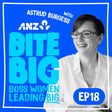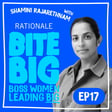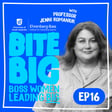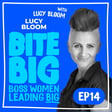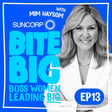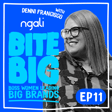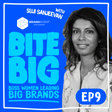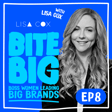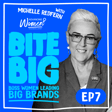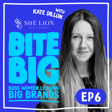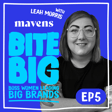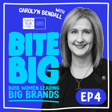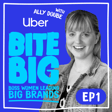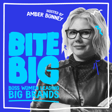
Amber Bites Big with Donna De Zwart, CEO of Charitable organisation, Fitted For Work.
In Episode 15 of BITE BIG, Amber is joined by Donna de Zwart, CEO of Fitted for Work, a social enterprise that’s helped over 46,000 women reclaim their independence through employment.
With a career spanning education, consulting and social enterprise, Donna’s mantra is clear and quietly radical: “Look for the beauty.” Born from personal hardship, it’s a daily practice that shapes everything from the way her team answers the phone to how they prepare clients for job interviews.
👑 Boss Takeaways from Episode 15 with Donna
- “Look for the beauty” – Donna’s mantra reminds us that even in moments of darkness, beauty can be found in people, in purpose, and in the quiet dignity of starting again.
- Work is power – It’s not just about a job. Employment is a key to choice, safety and autonomy, especially for women recovering from family violence.
- Reinvention is resilience – From wardrobes to worldviews, Donna shares how beauty and creativity are deeply connected to personal reinvention and healing.
- The ripple effect is real – Helping one woman into work can shift the trajectory for entire families, communities and future generations.
- Systemic change starts with action – From launching programs for girls as young as 14 to partnering with corporate giants like Coles and Accenture, Donna proves that small acts can spark big shifts.
- No safety net? Build one – Donna’s decade of leadership at Fitted for Work hasn’t been easy. But with tenacity, vision and a board that believes, she’s shown that passion, not privilege, builds progress.
🔗 Follow BITE BIG for more unfiltered stories from women who lead big one mantra at a time.
Links:
Donna De Zwart LinkedIn
Donna De Zwart Instagram
Fitted For Work Web
Fitted For Work Instagram
Fitted For Work Facebook Page
Amber's Instagram
Amber's LinkedIn
The Edison Agency's LinkedIn
The Edison Agency's Instagram
CREDITS
Host & ECD – Amber Bonney, The Edison Agency Founder
Producer – Niki Beeston, Group Account Director, The Edison Agency
Marketing – Liz Archer, Head of Operations, The Edison Agency
Social Assets – Alyssa Payad, Intern, The Edison Agency
Post Production – Francine Toscano, 17th Street Audio
